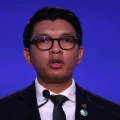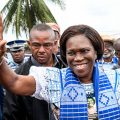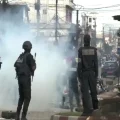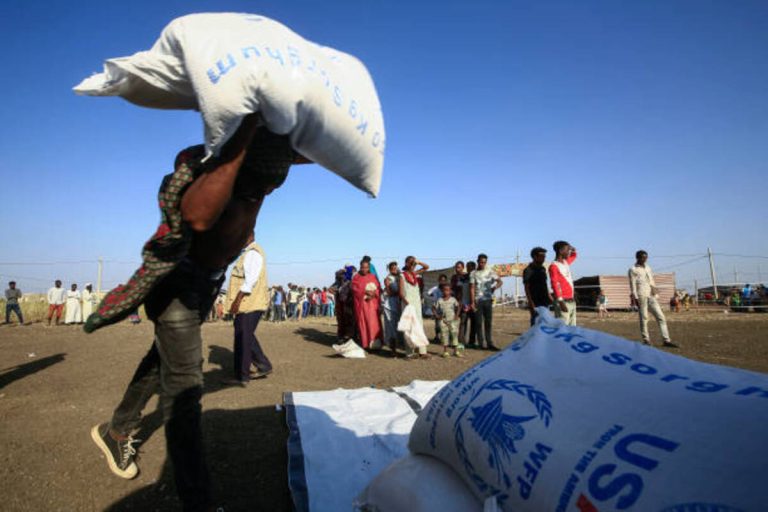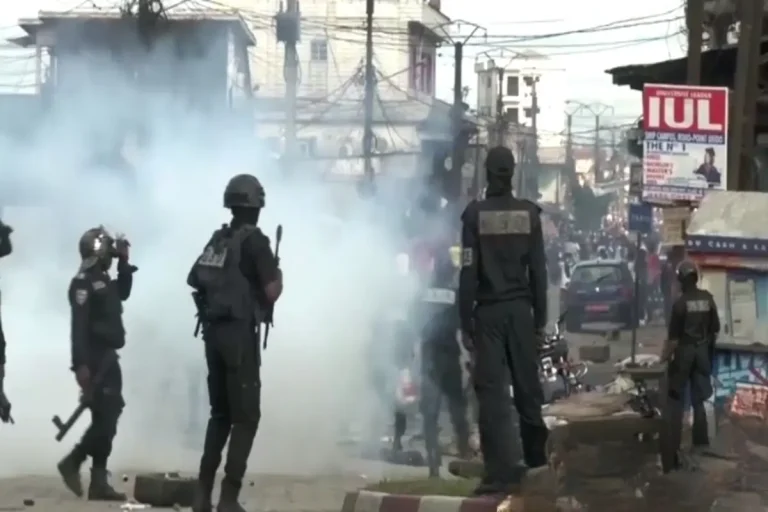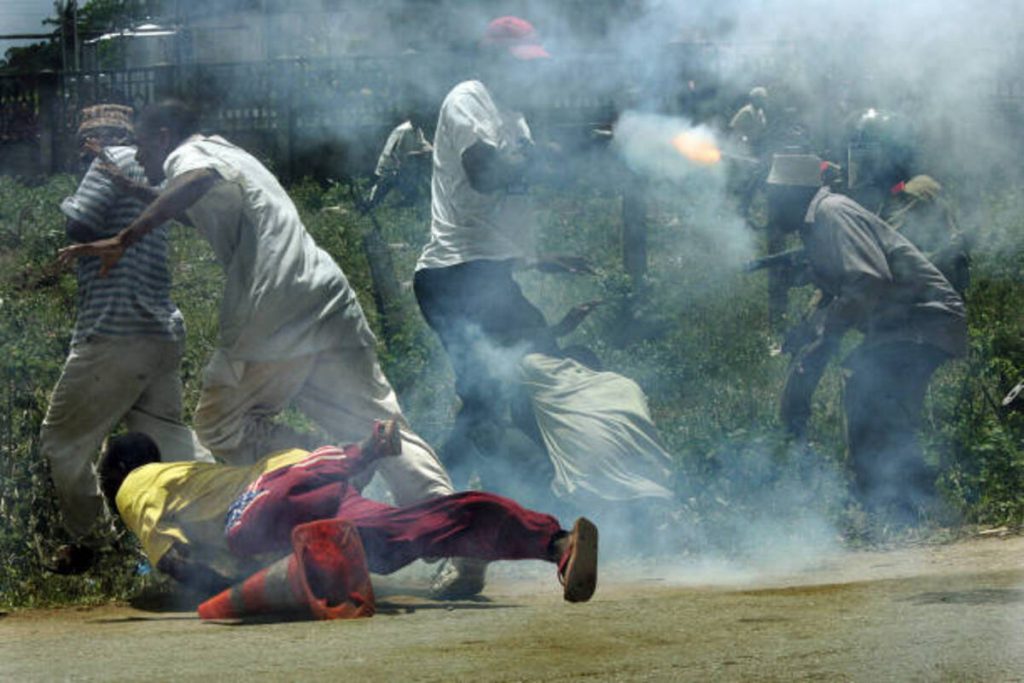
Caption: CUF supporters clash with police in Mahonda, Zanzibar, 09 October 2005. AFP Marco Longari
Tanzania Protests Trigger National Security Response
State television broadcasted the mainland results of Wednesday’s vote, showing the Chama Cha Mapinduzi (CCM) party retaining power after governing Tanzania since independence in 1961.
Presidential candidates from the two main opposition parties were barred from running, leaving incumbent President Samia Suluhu Hassan to face sixteen minor party candidates who conducted minimal campaigning.
The semi-autonomous archipelago of Zanzibar also retained CCM leadership, with the electoral commission reporting that incumbent President Hussein Mwinyi won 78.8% of votes.
The opposition rejected Zanzibar’s results as fraudulent and said it would announce next steps soon.
Protests Spread Across Dar es Salaam
Chaos erupted Wednesday afternoon as young people took to the streets to protest the harassment of opposition leaders and limited electoral choices.
Several vehicles, a gas station, and police stations were set ablaze by demonstrators.
Amnesty International reported two fatalities during the initial protests, though the government has not officially confirmed casualty numbers or assessed damage.
The demonstrations quickly spread to other urban areas, prompting authorities to postpone the reopening of colleges and universities that had been scheduled for Monday.
Military Deployment and Security Measures
Army chief Gen. Jacob John Mkunda condemned the violence and said Thursday that the military would collaborate with other security agencies to contain unrest.
Additional security checkpoints, curfews, and patrols were established across major streets to prevent escalation of the Tanzania protests.
Despite these measures, protest gatherings continued in Dar es Salaam, showing widespread public frustration over perceived electoral injustices.
Opposition Voices and Diaspora Support
Opposition leaders criticized the government for restricting fair competition, citing the exclusion of major opposition candidates.
Tanzanians in the diaspora have hosted daily X Spaces to analyze the protests and discuss financial support strategies for demonstrators.
Human rights groups condemned the use of force against peaceful protesters, while civil society organizations monitored events to provide humanitarian assistance where needed.
Impact on Daily Life and Economic Activity
Ferry services in Zanzibar, unavailable for two days, resumed Friday under heavy military oversight.
Businesses and schools in major cities experienced interruptions, and authorities warned of further disruptions as protests continue.
Internet blackouts aimed at limiting coordination among demonstrators have affected communication and online commerce.
International Reactions
The United Nations urged restraint from all parties and emphasized the importance of transparent electoral practices in Tanzania.
Reuters reported that demonstrators chanted against government suppression of opposition voices and alleged election fraud.
The Guardian highlighted that while protests remain concentrated in urban centers, they risk spreading to rural regions, raising concerns over national stability.
Election Background and Political Context
The CCM party has maintained continuous governance in Tanzania since 1961, making opposition victories historically difficult.
Critics argue that barring major opposition candidates undermines democratic processes and limits citizens’ choices.
The 2025 elections have drawn international attention due to the restrictions placed on opposition parties and alleged irregularities in Zanzibar.
Social Media and Public Mobilization
Tanzanians leveraged social media platforms before the internet shutdown to coordinate protests and share updates from affected areas.
The diaspora’s X Spaces discussions provided analysis on protest strategy and fundraising for demonstrators on the ground.
Security measures, including surveillance and checkpoints, have partially limited public assembly but have not entirely stopped the Tanzania protests.
Government Statements and Public Sentiment
The government has not publicly commented on the extent of property damage or casualties during the demonstrations.
Army chief Gen. Mkunda stressed that security forces aim to prevent escalation while maintaining public safety.
Many citizens have expressed frustration over limited political participation and the transparency of vote counting.
Civil society organizations have warned about the humanitarian impact of prolonged unrest and curfews on residents.
Medical facilities in Dar es Salaam and Zanzibar have prepared for potential injuries from ongoing confrontations between police and protesters.
Related: Sudan’s military forces UN aid officials out as famine and fighting spread
With the Tanzania protests entering their fourth day, authorities face increasing pressure to manage unrest while balancing public safety and political legitimacy.
Political analysts warn that repeated exclusion of opposition voices may undermine voter confidence and risk continued instability.
